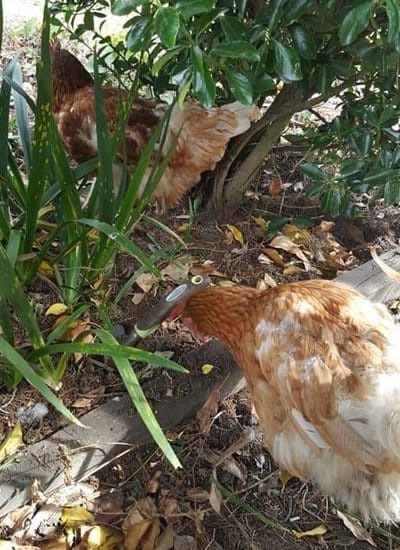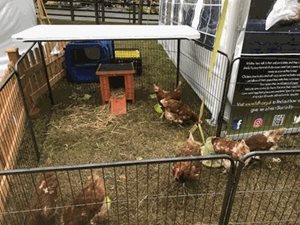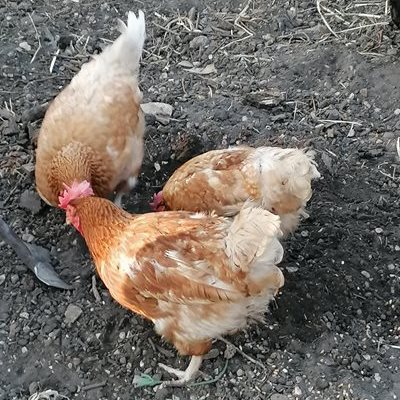Eggs are a firm favourite in our house so we’ve kept chickens for about 7 or 8 years now, but we always had special breeds and either got them at point of lay (about 22 to 24 weeks old) or as chicks. Both very appealing options, especially chicks if you have young children. However, the latest batch we got were rescued ex-battery hens.
Well, right from our very first set of chickens we were hooked. B.C. (before chickens), we’d had no idea how lovable these little feathered guys could be. We were guilty of thinking ‘they’re just animals.’ What more was there to know?
It didn’t take us long to discover that, far from being just a source of (amazing) food each day, they are also a source of great joy. They are friendly creatures who are entertaining, inquisitive, intelligent and all-round good eggs!
And so, having learned that they make great pets we felt strongly that those hens who had given so much in the first 17 months of their lives, in terrible conditions, didn’t deserve the fate that befalls so many ex-batteries.
Sadly, at 17 months old the egg production of a commercially-farmed chicken slows and it is no longer considered viable. Chickens can live for up to 10 years though and, in the right conditions, will continue to lay for the majority of that extended life. They deserve a long and happy retirement with the freedom to roam, scratch and bathe in the dust where they please.


Don’t worry, you don’t have to go direct to the farm. There are a number of organisations that are dedicated to rescuing entire flocks of chickens at the point when they are no longer of use to the commercial operation.
From national charities like The British Hen Welfare Trust (pictured here at the Gardeners’ World Live show) and Fresh Start For Hens to regional rescue centres – look out for ads on Gumtree or Preloved for local organisations.
Hens are rehomed by people in a range of circumstances, they will happily live in towns, cities, the countryside, schools, care homes, anywhere, as long as they have a safe and comfortable space.
They don’t need a vast amount of space, but hens are sociable birds so you should have enough space for at least 2, ideally 3 as a minimum. The British Hen Welfare Trust advises that you buy a hen house to accommodate more hens than you want. For example, if you want four hens, buy a hen house to accommodate six, then you can be sure there will be sufficient room.
Hens can be kept in a purpose-built hen house or a converted ordinary shed/outbuilding that incorporates a nest box and something to perch on, but it must be fox-proof and vermin-proof. The ground in a chicken coop can get quite muddy so covering it with a layer of wood chippings can help to protect the hens’ feet. You could choose a smaller run that you can move around your garden – if it’s on your lawn, you’ll need to move it every couple of weeks and help your lawn to recover by overseeding it.
Personally, we try to keep our hens in their enclosure (where they have bags of space) but invariably end up letting them out to roam free, especially when we are out in the garden. As soon as you get out your gardening tools they’re there, right at your feet, waiting for you to get dig up their favourite treats – worms and grubs from the soil. Many a time, we’ve lifted up a hen on the spade as we’ve been turning over the veg patch! Beware though, if you’re precious about having orderly borders or if you leave your veg plot unprotected, they love to scrat around in the soil and help themselves to your produce – particular favourites are brassica and perpetual spinach!

You can find useful advice about rehoming hens and you can sign up to get your own girls here:
Author: Hannah McGouran, Rolawn
As Rolawn’s resident Copy and Digital Content Creator Hannah draws on her degree in Linguistics and Social Sciences, many years of marketing experience and a love of gardening, to make the world of turf, topsoil, barks and mulches accessible to the masses.